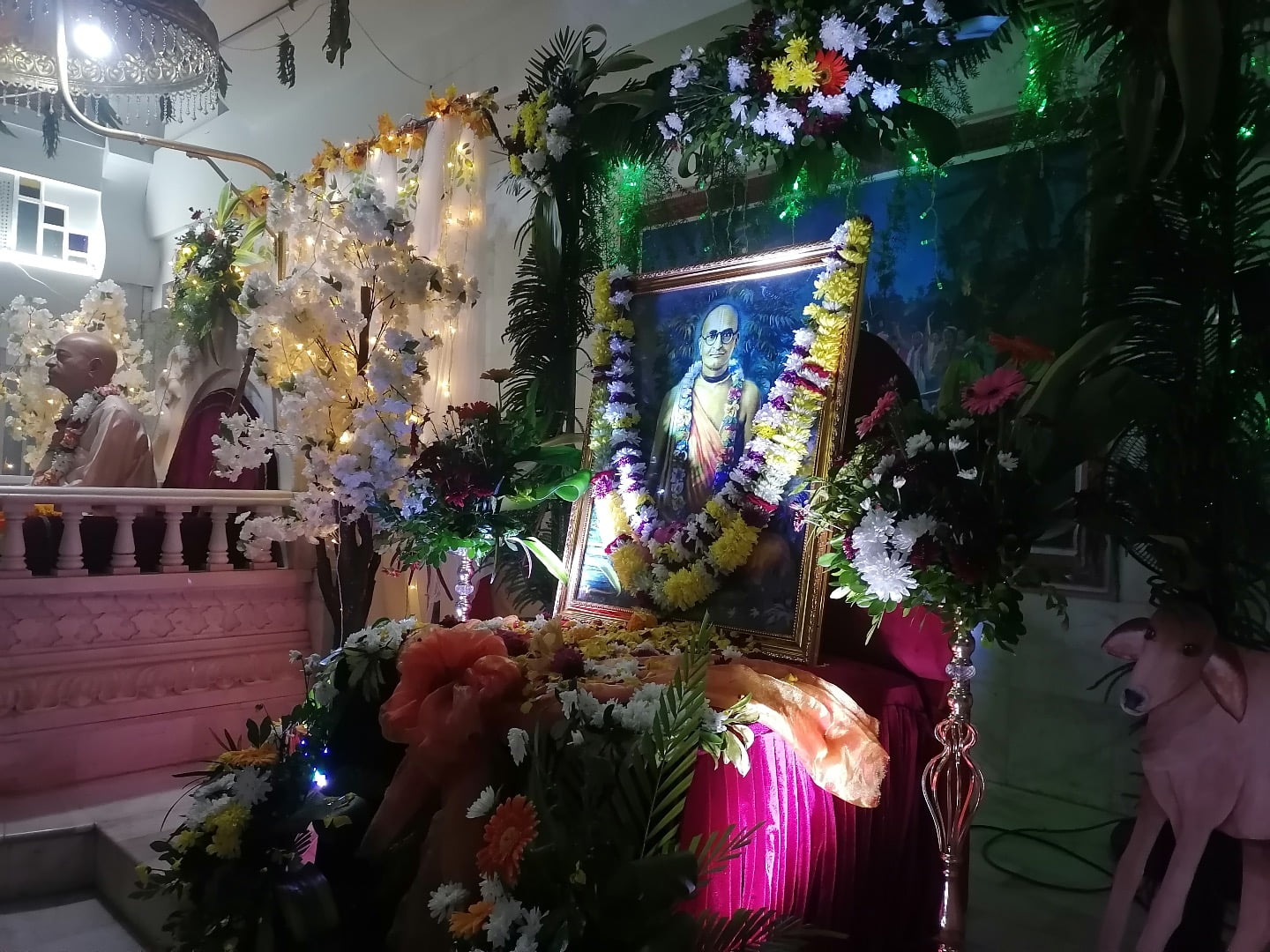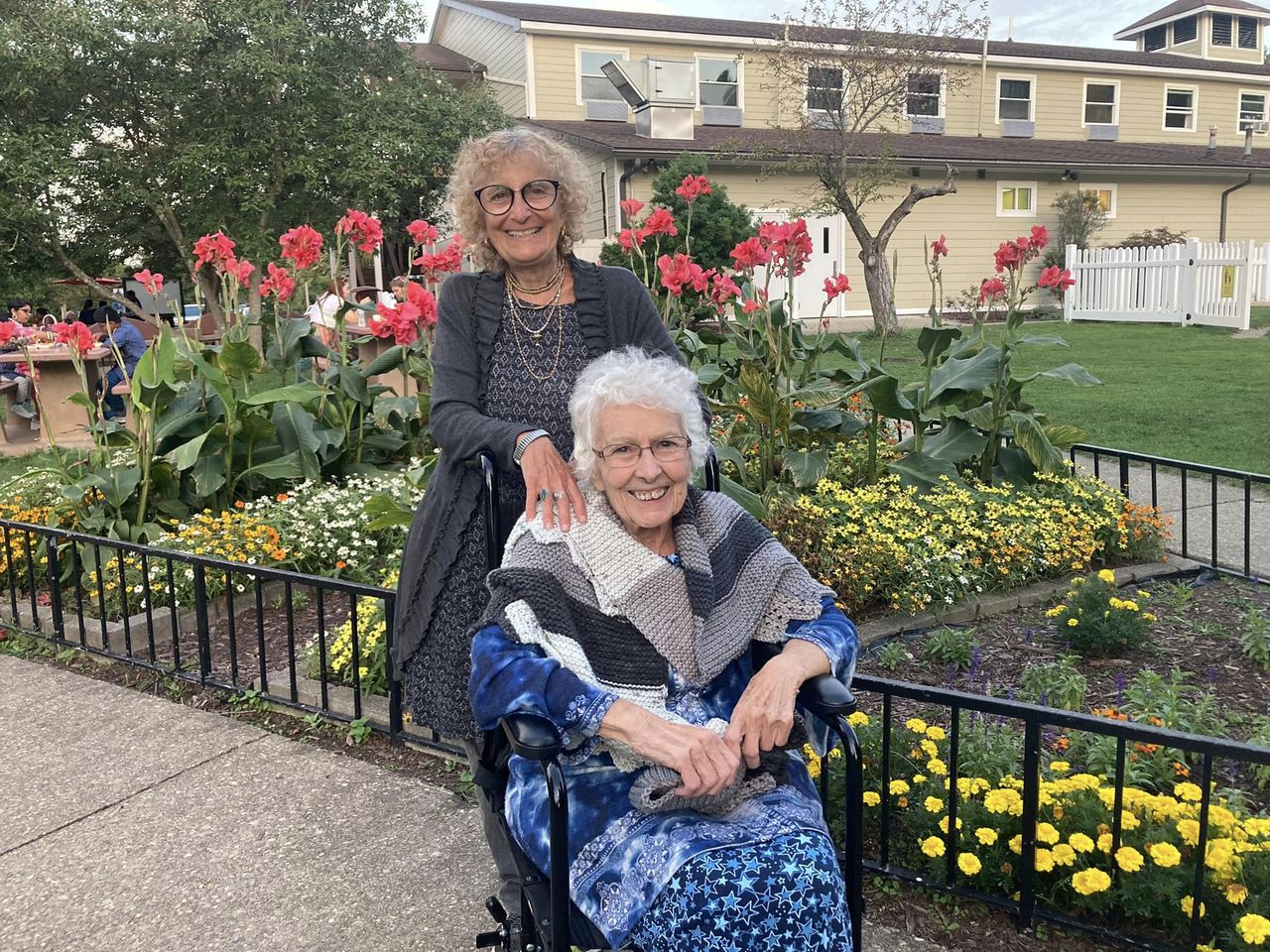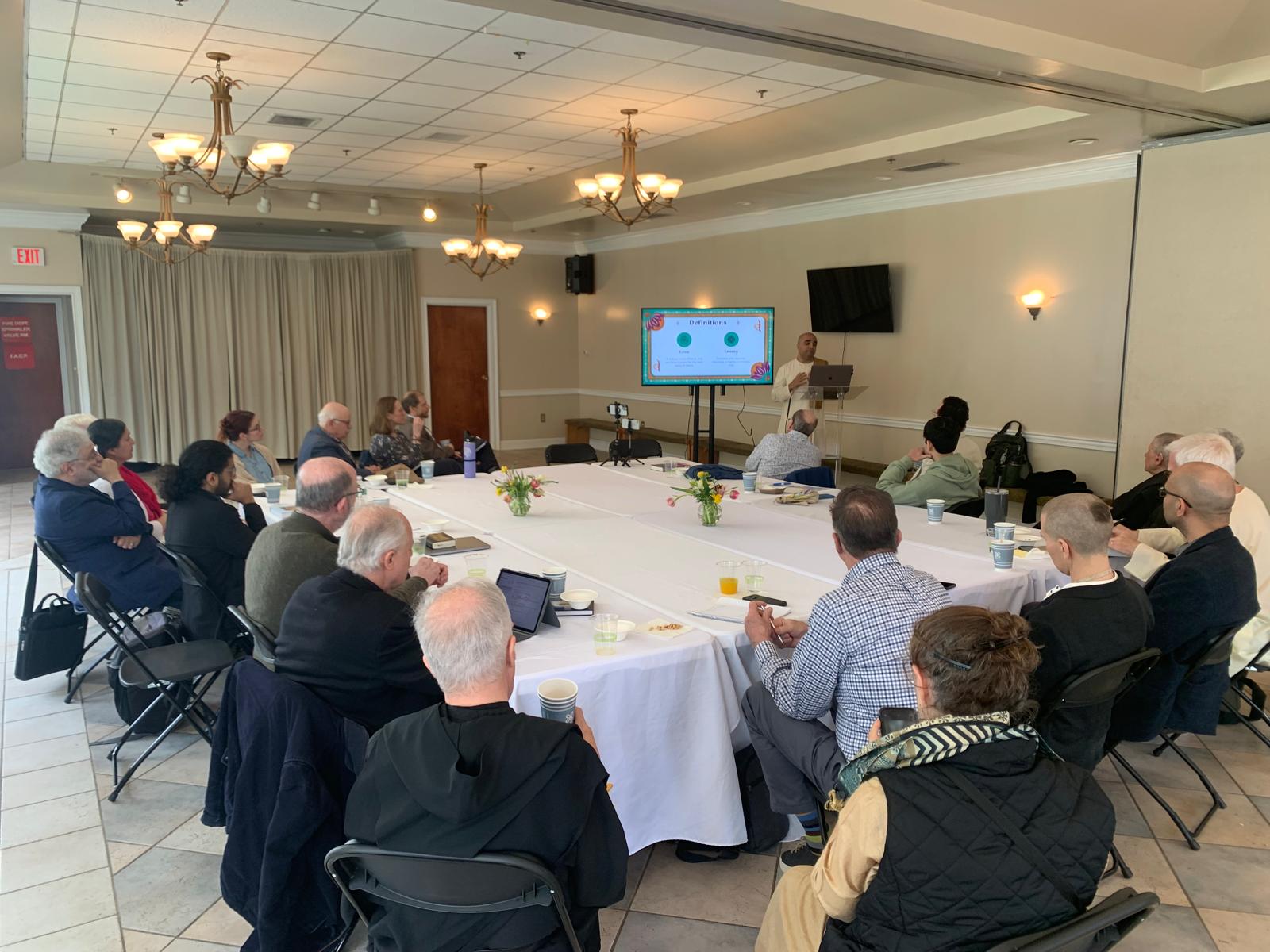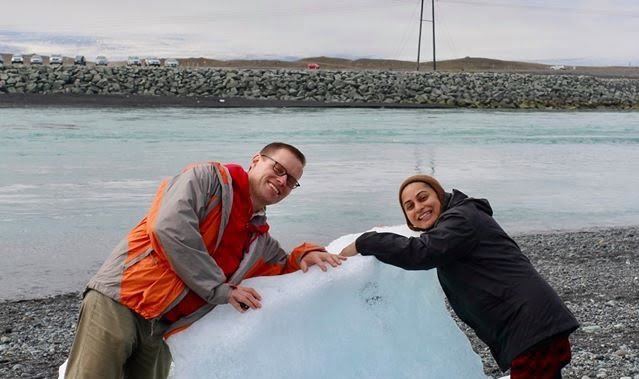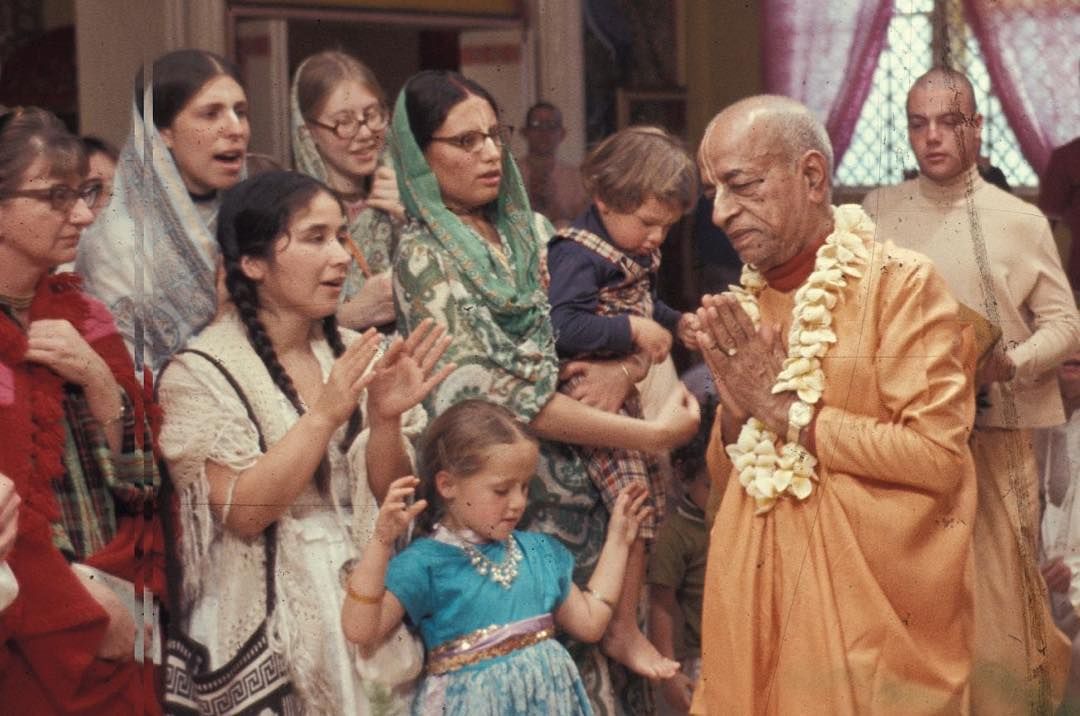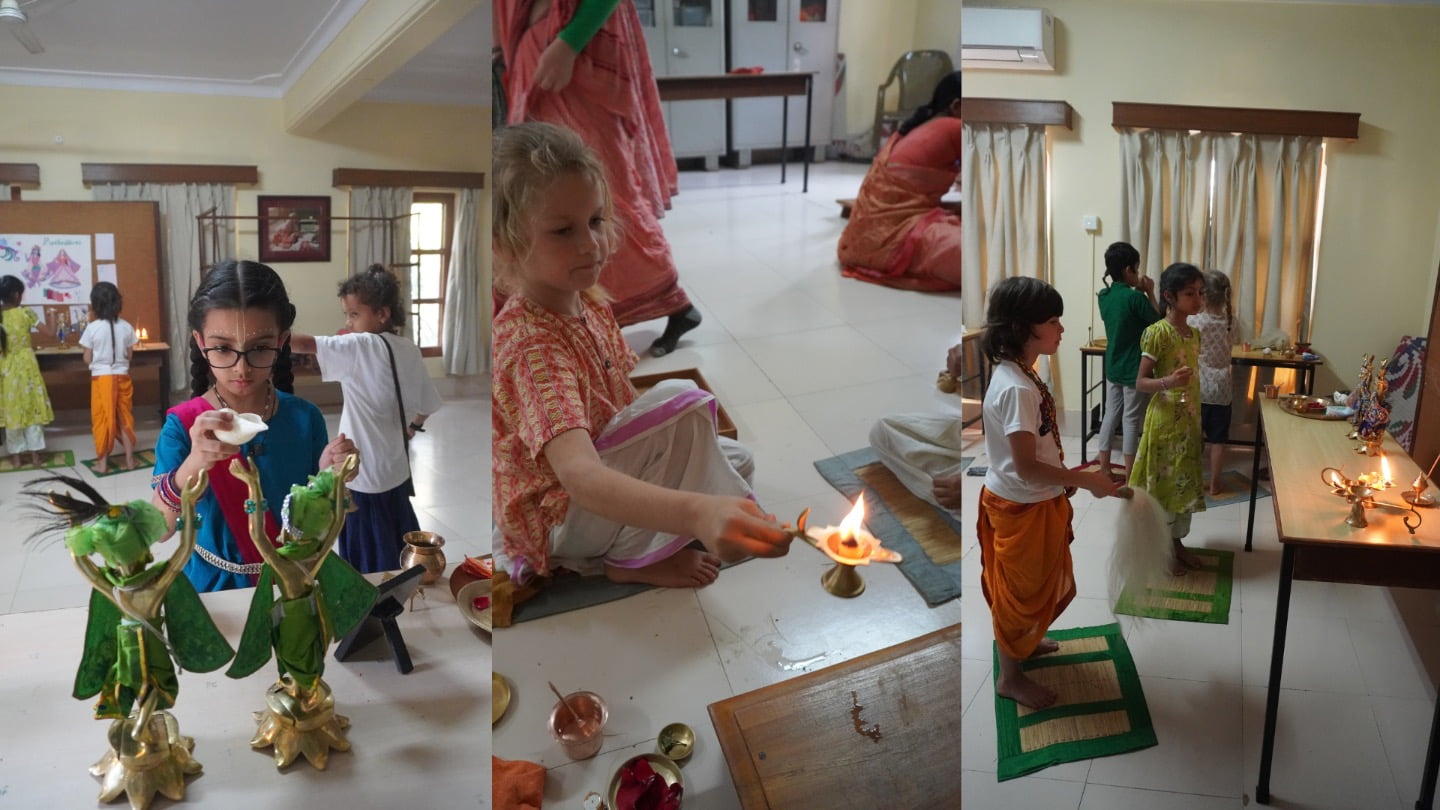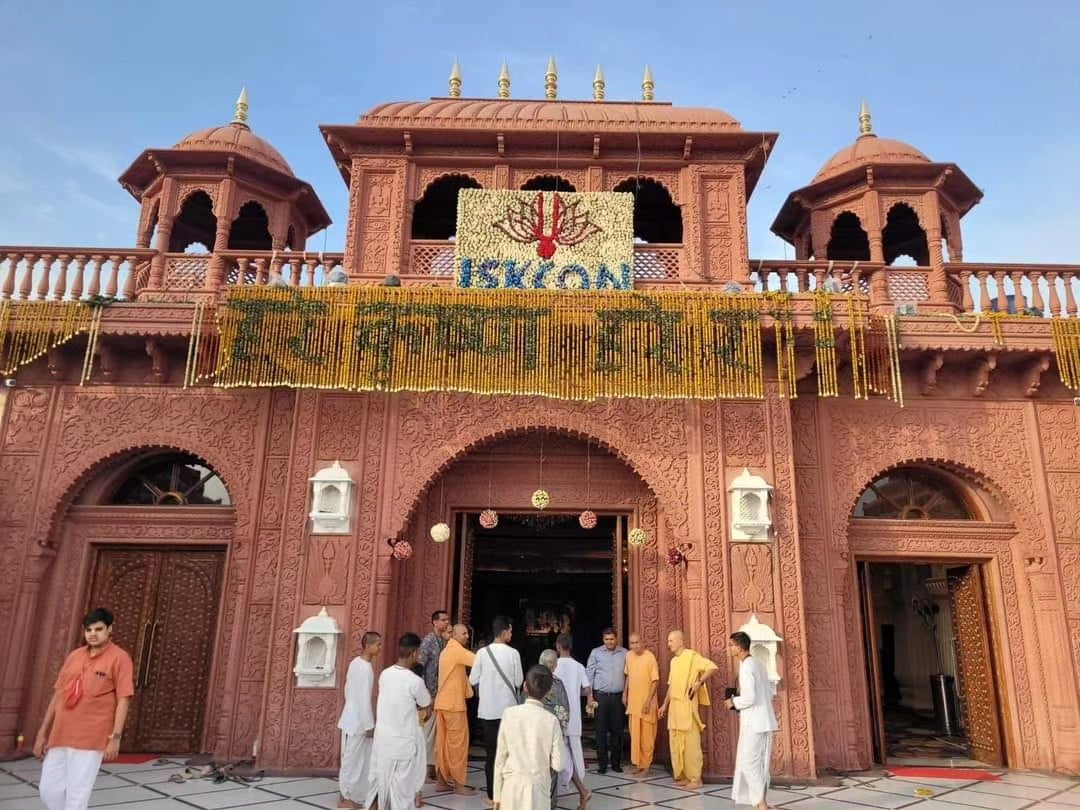Radha Krishna Deaf Assocation Sign Their Way to God
By Madhava Smullen | Aug 28, 2010
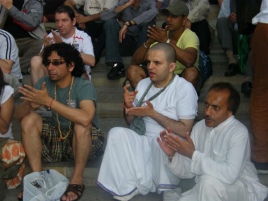
When Dayal Gauranga Dasa first began visiting ISKCON’s Bhaktivedanta Manor near London, England, in 1980, he found that it was difficult for him to participate in temple activities and to connect with the community. And he wasn’t the only one. There were many others across the country, and the rest of the world, for whom access to ISKCON temples was no easy feat.
For Dayal Gauranga Dasa was born deaf. Originally from Kenya, Africa, he was working in England as a teacher and assessor of British sign language, when he began learning about Lord Krishna and the Bhagavad-gita As It Is from his devotee brother Madan Mohan Dasa.
“When I started visiting the temple, and saw that there was no ISKCON Deaf Community, I decided that one had to be started because the cultures of deaf people and hearing people are more different than you might think,” he says. “Of course, we communicate with sign language rather than speech. But there are other, less obvious issues. For instance, deaf people get bored during a thirty minute mangal arati kirtan, because they cannot hear it.”
So at the age of twenty-five, Dayal Gauranga established the first ISKCON Deaf community, called ‘Signs Unto Krishna.’ The name stuck for fifteen years, until at forty he asked his guru Bhakti Charu Swami to give the group a new one. It was renamed the ‘Radha Krishna Deaf People Association,’ a moniker it continues to retain, through its new incarnation’s 10th anniversary in 2010.
The primary aim of the Radha Krishna Deaf People Association (RKDA) is to show deaf people everywhere that they can learn Krishna consciousness too, and are very welcome to visit temples and be involved in different services.
Dayal Gauranga has even invented a whole set of sign language words to make things easier.
“When I first started visiting the temple, the paid interpreter I attended lectures with found it difficult to sign the technical terms of Krishna consciousness,” Dayal says. “He would fingerspell many words that he himself didn´t understand, for instance ‘Chaitanya Charitamrta,’ and this slowed the fluidity of the interpretation. So I felt the need to create signs for technical Krishna conscious terms, just as Christians had created signs for their own terms.”
Many of Dayal Gauranga’s signs were based on inspiration from pictures—for instance, the sign for Krishna mimes holding a flute. Others were more difficult, such as prasadam, or more abstract terms that did not have pictures relating to them, like ‘Karma.’ Others were very creative: for instance, the sign for
‘Vrindavana,’ Krishna’s birthplace, includes signs for the words “swap” and “babies”—since Krishna was brought to Vrindavana and swapped for another baby—and ends with a ‘V’ shape.
Interpreting classes and events are easier today than they were in the earlier years, since Prema Pradipa Dasa—a hearing devotee who has studied sign language for many years—interprets instead of an outside interpreter without knowledge of ISKCON terminology. Still, difficulties arise.
“We always have to ask the temple authorities in advance for permission to have an interpreter present at classes, since sometimes they can distract the hearing devotees’ attention,” Dayal Gauranga says. “And we have to do the same with festivals, and to explain our needs clearly—for instance we need to make sure we can have an interpreter standing closer to us on the stage during performances so that we can see his interpretations clearly.”
But the biggest problem, Dayal Gauranga explains, is that there are just not enough interpreters at ISKCON temples. “Prema Pradipa is the only full-time devotee with sign language skills at the Manor, and he is overburdened,” he says. “We really need four or five interpreters. For example, there may not always be an interpreter around when a deaf devotee wants to hear a particular class, or they may miss an important announcement. Or they may not be able to take advantage of an opportunity to visit the holy places in India such as Vrindavana and Mayapur, because there are no interpreters available.”
As something of a remedy, RKDA arranges special programs for the deaf community at London’s Bhaktivedanta Manor and Soho Street temples, as well as at the homes of various deaf devotees. These programs include kirtan, lectures, and group discussion, all in sign language. RKDA also arranges special versions of certain festivals, such as Diwali, for deaf people, and produces special dramas about the pastimes of the Lord and his avatars using sign language.
Dayal Gauranga has also established a sign language and deaf awareness course for hearing devotees, to help integrate the two communities and to develop friendships.
“They can also buy our book ‘Sign Language in Hinduism,’ which brings together all the signs with Krishna conscious terminology that were dispersed across different formats,” he says. “As well as giving the deaf community access to ISKCON temples and communities all over the world, it allows deaf and hearing devotees to communicate.”
Using sign language with subtitles, the book and accompanying DVD cover the central teachings of the Bhagavad-gita and elaborate on the practice of chanting the maha-mantra, as well as narrating several stories from the Bhagavatam.
The book was the result of many years of work, and was finally released two years ago with support from Bhaktivedanta Manor’s educational department and from the hearing, deaf and Hindu communities.
The book, and the RKDA itself, has been many deaf peoples’ only chance to become devotees. For instance, Nirmal Thakkar, who was born deaf in India, moved to the UK as a child, and grew up as a Christian, began visiting the temple when he desired to learn more about his Hindu background—but could not understand anything.
When Dayal Gauranga invited him to attend some of RKDA’s programs, however, he found like-minded association and was able to ask questions. He made many friends who regularly encouraged him on his spiritual path, and his life changed completely. Nirmal clarified many doubts he had had about his relationship with God and the problems of life that no other religion could answer for him. He was deeply inspired by the Bhagavad-gita, and now teaches it to others. He also married another deaf devotee, and they have a hearing son who at four years old can already sign ‘Hare Krishna.’
Without RKDA, the chances of any of this happening would have been extremely limited.
Dayal feels that RKDA is a success when he sees deaf people enjoying spiritual life. “We love to see the beautiful Deities,” he says. “We also love to cook for the
devotees and eat prasadam. And we like to listen to lectures and ask questions. Also, when deaf and hearing dance together, it’s a wonderful feeling. And during bhajans and kirtans, when the interpreter signs what the leader is singing like a poem, it’s fascinating and very enjoyable.”
As well as focusing on their local community, members of RKDA travel and make an impact overseas. In 2006, they attended the ‘World Federation of the Deaf’ (WFD) in Spain—a conference of deaf people from all over the world. When they arrived wearing dhotis and tilak, people immediately swarmed around them, wanting to take a photo with them and asking questions. And in 2007, they visited a deaf school in Indore, India, and taught the many inquisitive students there about Krishna consciousness.
The group is currently working on a summary of the Bhagavad-gita As It Is in sign language, which will be followed by a sign language DVD on vegetarian cooking. They also wish to start developing a network of deaf devotees all over the world.
In the future, Dayal Gauranga hopes to become a board member of ISKCON, so that he can bring deaf awareness to the Hare Krishna movement. “I feel that it is very important to be aware of deaf devotees’ different needs and to help, support and encourage deaf people in ISKCON temples all over the world,” he says.
For more information, please visit www.rkdeaf.com or contact rkda@hotmail.co.uk.




